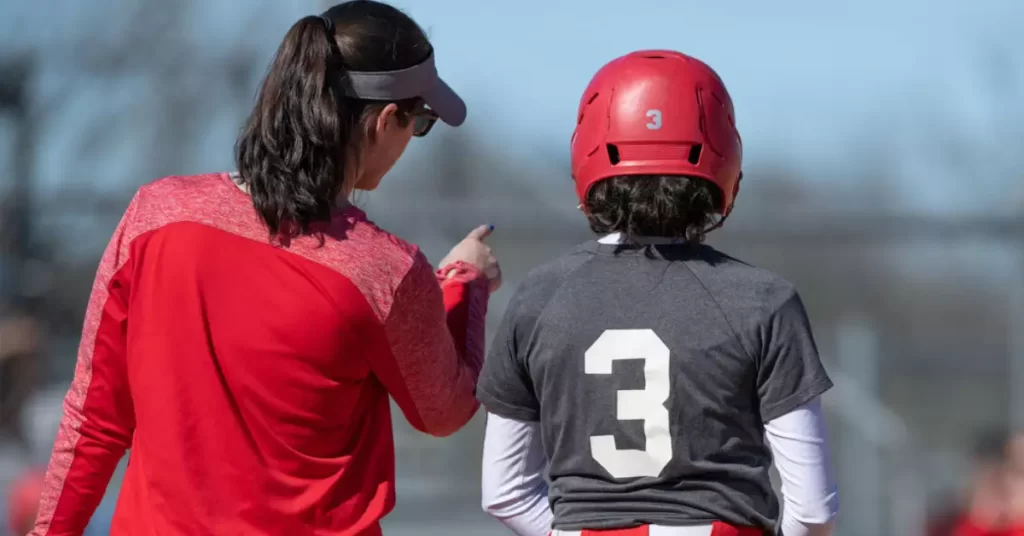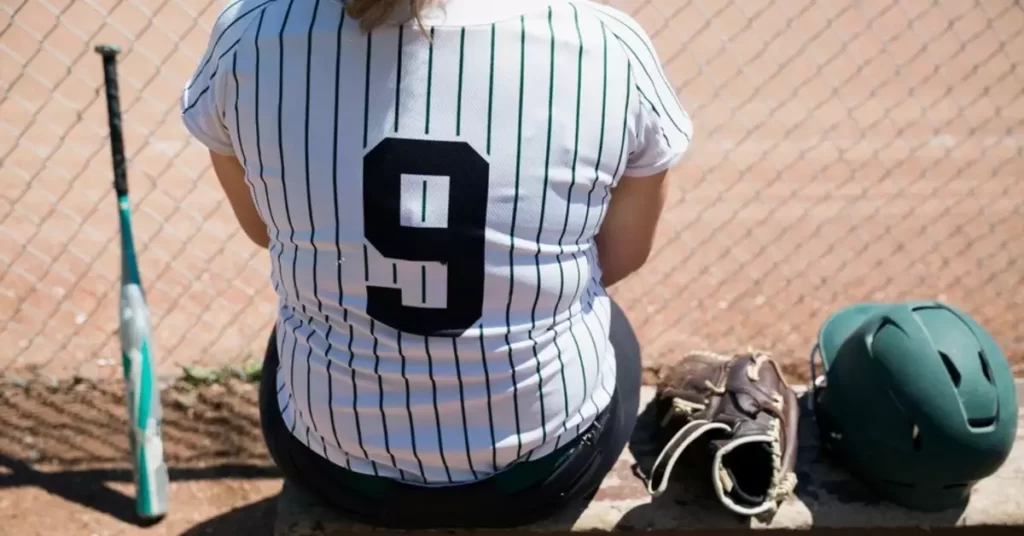Utility players in softball are versatile assets to any team, taking on multiple positions and often excelling in each. Their unique skill set sets them apart, providing invaluable support to coaches and teammates alike. Many find themselves captivated by the potential of these talented individuals.
A utility player’s adaptability to various positions and ability to perform consistently well makes them indispensable. Their flexibility allows coaches to strategize effectively, while teammates benefit from a strong, versatile presence on the field. The sheer range of their abilities makes them a powerful force on any softball team.
Discover the secrets behind these remarkable athletes and how their dynamic skills contribute to a team’s success. Prepare to be enlightened by the depth of their talents and inspired by the impact they make in the world of softball.
Defining the Utility Player
A utility player in softball is an athlete who can successfully play multiple positions on the field.
They are often referred to as “super-subs” or “all-rounders” due to their ability to seamlessly transition between positions and contribute to various aspects of the game. This versatility makes them an invaluable asset to a team.
Roles of a Utility Player
Utility players are called upon to fill in for various positions as needed during a game. Some of the roles they may assume include:
- Infielder: Playing any of the infield positions, such as first base, second base, shortstop, or third base.
- Outfielder: Taking up a spot in the outfield, typically in left, center, or right field.
- Pitcher: Stepping in to pitch when the starting pitcher struggles or when a relief pitcher is needed.
- Catcher: Filling in as catcher when required, calling pitches, and managing the game from behind the plate.
- Designated Hitter: Serving as the team’s designated hitter when necessary, providing additional offensive firepower.

Skills Required for Utility Players
To be an effective utility player, one must possess a broad skill set. Some of the essential skills include:
- Fielding: Exceptional glove work and quick reflexes are necessary for playing multiple positions.
- Throwing: A strong, accurate arm is crucial for making plays from various spots on the field.
- Hitting: The ability to contribute offensively is a must, as utility players often assume designated hitter roles.
- Base running: Speed and agility on the base paths are vital for creating scoring opportunities.
- Communication: Strong communication skills help utility players seamlessly integrate into different positions and ensure smooth gameplay.
Why Utility Players are Essential
Utility players bring numerous benefits to a softball team, including:
- Flexibility: Having a utility player on the roster allows coaches to make strategic adjustments during a game, such as replacing an injured or underperforming player without compromising the team’s overall performance.
- Depth: Utility players provide much-needed depth to a team, reducing the pressure on other players and ensuring that all positions are covered adequately.
- Balance: The presence of a utility player can help maintain a balanced lineup, as they can fill various roles and contribute both offensively and defensively.
- Morale: Utility players often embody the spirit of teamwork, selflessness, and adaptability, which can positively impact team morale and foster a more cohesive and supportive environment.
Developing Utility Player Skills
To become a utility player, it’s essential to focus on honing the following skills:
- Versatility: Practice playing different positions and learn the nuances of each role. This will help you understand the game better and become more adaptable on the field.
- Fundamentals: Master the basics of fielding, throwing, hitting, and base running, as these skills will be required in various capacities throughout a game.
- Situational awareness: Develop a keen sense of situational awareness and understanding of the game. This will help you make better decisions on the field and respond quickly to changes in gameplay.
- Physical fitness: Maintain a high level of physical fitness, as utility players are often required to perform at a high level in multiple roles throughout a game.

Famous Utility Players in Softball History
Several notable utility players have left their mark on softball history, including:
- Jessica Mendoza: A two-time Olympic medalist, Mendoza was known for her ability to play both outfield and infield positions. Her versatility made her an invaluable asset to Team USA during her playing career.
- Natasha Watley: Another Team USA standout, Watley excelled as a shortstop and outfielder, earning two Olympic medals and numerous accolades throughout her illustrious career.
Coaching Utility Players
Coaches can play a significant role in developing and maximizing the potential of utility players. Some best practices for coaching utility players include:
- Encouraging versatility: Provide opportunities for players to practice and develop skills in multiple positions, fostering an environment that values adaptability and flexibility.
- Providing targeted feedback: Offer specific, constructive feedback on how utility players can improve their performance in various roles.
- Emphasizing teamwork: Reinforce the importance of putting the team’s needs ahead of individual goals, as utility players must be willing to step into any role to help their team succeed.
The Impact of Utility Players on Team Dynamics
Utility players can have a profound impact on team dynamics, both on and off the field. Some key ways utility players can influence a team include:
- Fostering camaraderie: Utility players often serve as a unifying force within a team, as their selflessness and adaptability can inspire others to put the team’s needs first.
- Enhancing performance: By filling in gaps and providing depth, utility players can help elevate a team’s overall performance and increase the likelihood of success.
How to Transition into a Utility Player Role
If you’re interested in becoming a utility player, consider taking the following steps:
Communicate your goals
Let your coach know that you’re interested in expanding your skills and taking on a utility player role. They can help guide you in the right direction and provide opportunities for growth.
Study the game
Take the time to learn the intricacies of each position and understand the responsibilities associated with each role. Watch games, study film, and seek guidance from experienced players to expand your knowledge.
Practice, practice, practice
Dedicate time to honing your skills in multiple positions, both during team practices and on your own. Repetition and consistency are crucial for mastering the various aspects of the game.
Stay physically fit
Ensure that you maintain a high level of physical fitness, as utility players need the stamina and endurance to perform well in various roles throughout a game.
Embrace the challenge
Adopt a positive mindset and embrace the challenge of becoming a utility player. This attitude will help you persevere through the inevitable setbacks and learning curves that come with taking on new roles.
Pros and Cons of Being a Utility Player
While being a utility player offers numerous benefits, it’s important to consider both the pros and cons before pursuing this path:
Pros:
- Increased playing time: Utility players often receive more playing time, as their versatility enables them to fill in for various positions during a game.
- Enhanced skill development: By playing multiple positions, utility players can develop a broader range of skills and improve their overall game.
- Greater value to the team: Utility players provide much-needed depth and flexibility, making them indispensable to a team’s success.
- Higher likelihood of being recruited: College and professional teams often seek out utility players for their rosters, as their adaptability and skill set are highly valued.
Cons:
- Lack of specialization: While utility players can play multiple positions, they may not be as specialized or proficient in a particular role as a dedicated position player.
- Increased pressure: The responsibility of stepping into various roles can place added pressure on utility players, both mentally and physically.
- Potential for burnout: The demands of being a utility player can be taxing, potentially leading to burnout or injury if not managed properly.
FAQs
What is the primary role of a utility player in softball?
A utility player is responsible for playing multiple positions on the field as needed, allowing coaches to make strategic adjustments during a game and providing depth to the team.
Can a utility player also be a starting player?
Yes, utility players can be starting players as well. In fact, their versatility can often make them a valuable asset in the starting lineup.
How can I become a utility player in softball?
To become a utility player, focus on developing a broad skill set, including fielding, throwing, hitting, and base running.
Practice playing different positions, maintain a high level of physical fitness, and cultivate situational awareness and understanding of the game.
Final Thoughts
Utility players undeniably bring a wealth of benefits to a softball team. Their diverse skill set and adaptability contribute to a strong, cohesive team dynamic, while their commitment to excel in multiple positions speaks volumes about their dedication to the sport.
Embracing the invaluable nature of utility players in softball can revolutionize a team’s performance and redefine success on the field. As the significance of these all-rounders becomes more widely recognized, we can expect their influence to continue growing in the world of competitive softball.
